Welches Filtersystem kann Schwefel aus Wasser filtern?
The presence of sulfides (such as hydrogen sulfide) in water not only brings unpleasant odors, but may also have negative effects on human health. In order to ensure the safety of drinking water, it is particularly important to find an effective filtration system to remove sulfides from water.
This article will explore in depth several filtration systems that can effectively remove sulfides from water, including their principles, advantages and disadvantages, and applicable scenarios.
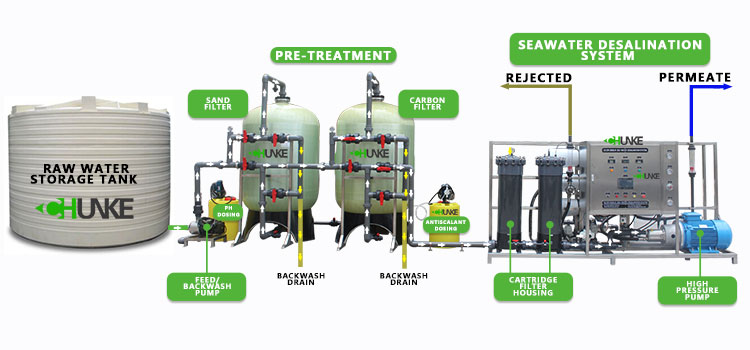
What are the forms and hazards of sulfur in water?
1.1 Main forms of sulfur:
In water, sulfur mainly exists in the form of hydrogen sulfide (H₂S), sulfate (SO₄²⁻) and sulfide. Hydrogen sulfide is a colorless, toxic gas with a rotten egg smell and is commonly found in groundwater and well water. Sulfate is commonly found in industrial wastewater and some natural water bodies.
1.2 Hazards of sulfur:
Hydrogen sulfide not only has a strong odor, but long-term drinking of water containing high concentrations of hydrogen sulfide may cause digestive system diseases and other health problems. Although sulfates are relatively harmless, high concentrations of sulfates can cause water quality to deteriorate, affect the drinking experience, and may cause gastrointestinal discomfort.
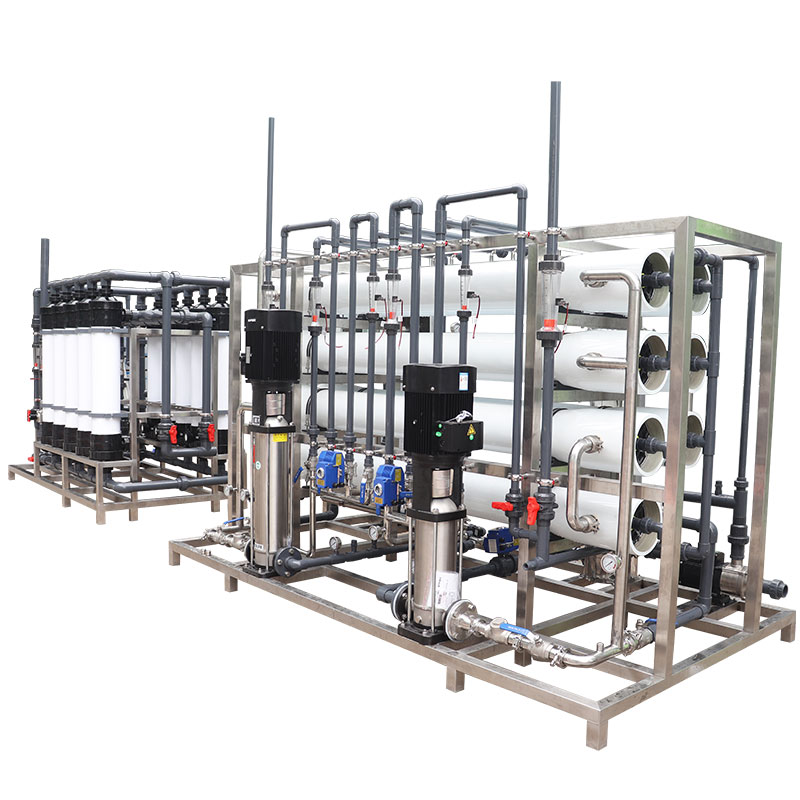
Which filtration system can filter sulfur from water?
Filtration systems that can filter sulfur from water:
● Activated carbon filter,
● Oxidation filtration system,
● Reverse osmosis (RO) system,
● Ion exchange system,
● Green sand filter.
2.1 Activated carbon filter:
Activated carbon filter is a common water treatment device, widely used to remove organic matter, odor and some chemicals from water.
● Working principle: Activated carbon has a large surface area and rich pore structure, which can remove hydrogen sulfide and other organic matter from water by physical adsorption and chemical adsorption.
Advantages of activated carbon filter:
● It is effective in removing odors and organic pollutants.
● Simple maintenance and low cost.
Disadvantages of activated carbon filter:
● Limited effect on sulfate removal.
● Activated carbon needs to be replaced regularly after saturation, otherwise the effect will be significantly reduced.
● Applicable scenarios: Suitable for households and small industrial sites, mainly used to remove hydrogen sulfide and odor in water.
2.2 Oxidation filtration system:
Oxidation filtration system oxidizes hydrogen sulfide into insoluble sulfur or sulfate, and then removes it by filtration.
● Working principle: Oxidation filtration system usually uses oxidants such as oxygen, chlorine, ozone or potassium permanganate to oxidize hydrogen sulfide into sulfur or sulfate. The oxidized products are removed by sand filtration or other media filters.
Advantages of oxidation filtration system:
● Very good removal effect on hydrogen sulfide.
● Can handle high concentrations of hydrogen sulfide.
Disadvantages of oxidation filtration system:
● The system is complex and has high requirements for operation and maintenance.
● Chemical agents need to be added, and there may be a risk of secondary pollution.
● Applicable scenarios: Suitable for water sources with high hydrogen sulfide concentrations, such as industrial wastewater treatment and groundwater treatment.
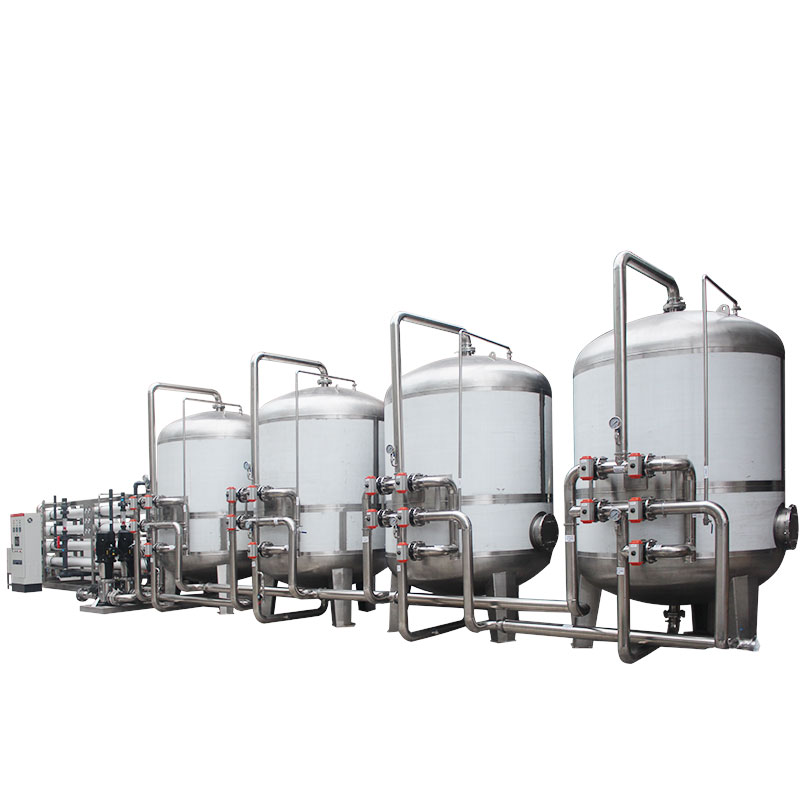
2.3 Reverse osmosis (RO) system:
The reverse osmosis system separates soluble substances in water, including sulfates, through a semi-permeable membrane.
● Working principle: The pore size of the reverse osmosis membrane is extremely small, allowing only water molecules to pass through, while soluble substances such as sulfate are blocked on the other side of the membrane, thereby achieving water purification.
Advantages of reverse osmosis (RO) system:
● The removal effect is extensive, including sulfate, heavy metals and other soluble substances.
● The water quality of the produced water is high, suitable for drinking water treatment.
Disadvantages of reverse osmosis (RO) system:
● The removal effect of hydrogen sulfide is limited, and it needs to be used with a pre-filter.
● The system is complex, costly, and energy-intensive.
● Applicable scenarios: Suitable for household drinking water purification and industrial sites that require high-purity water.
2.4 Ion exchange system:
The ion exchange system exchanges ions in water, including sulfate, through resin.
● Working principle: Ion exchange resin has selective adsorption capacity and purifies water by exchanging sulfate ions in water. Commonly used ion exchange resins are cation exchange resins and anion exchange resins.
Advantages of ion exchange system:
● Significant sulfate removal effect.
● Simple maintenance, and the resin can be regenerated.
Disadvantages of ion exchange system:
● Limited effect on hydrogen sulfide removal.
● Requires regular resin regeneration, which is troublesome to operate.
● Applicable scenarios: Suitable for industrial and domestic water treatment that needs to remove sulfates in water.
2.5 Green sand filter:
Green sand filter removes hydrogen sulfide and sulfates from water by combining oxidation and filtration.
● Working principle: Green sand is a manganese-containing filter medium that can oxidize hydrogen sulfide and iron in water to form insoluble precipitates, which are then removed by filtration.
Advantages of green sand filter:
● Good removal effect on hydrogen sulfide and iron.
● Simple operation and wide applicability.
Disadvantages of green sand filter:
● Requires regular backwashing and regeneration, and has high maintenance requirements.
● Limited effect on sulfate removal.
● Applicable scenarios: Suitable for groundwater and well water treatment containing hydrogen sulfide and iron.
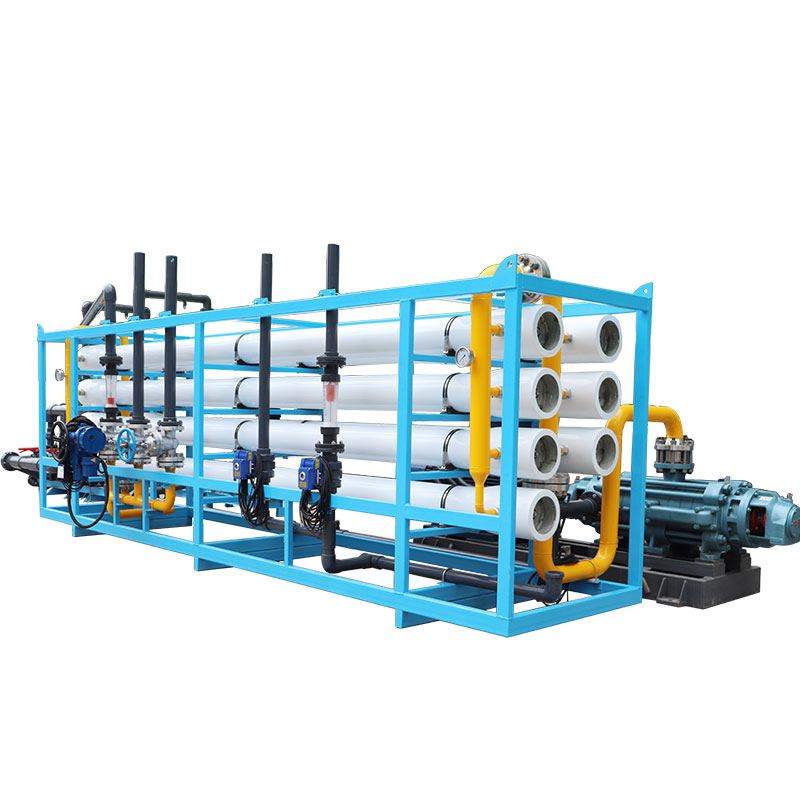
How to choose the right filtration system for me?
When choosing a filtration system to remove sulfur from water, it is necessary to comprehensively consider factors such as water quality, treatment requirements and economic costs. Here are some suggestions:
3.1 High hydrogen sulfide content:
If the water contains high levels of hydrogen sulfide, it is recommended to use an oxidation filtration system or a green sand filter. The former is suitable for treating high concentrations of hydrogen sulfide, while the latter is suitable for homes and small industrial sites.
3.2 High sulfate content:
For water sources with high sulfate content, reverse osmosis systems and ion exchange systems are better choices. The former is suitable for scenarios that require high-purity water, while the latter is suitable for larger-scale industrial water treatment.
3.3 Comprehensive treatment needs:
If the water contains both hydrogen sulfide and sulfate, you can consider using different filtration systems in combination. For example, first use an oxidation filtration system to remove hydrogen sulfide, and then use a reverse osmosis system to remove sulfate to ensure water quality safety.
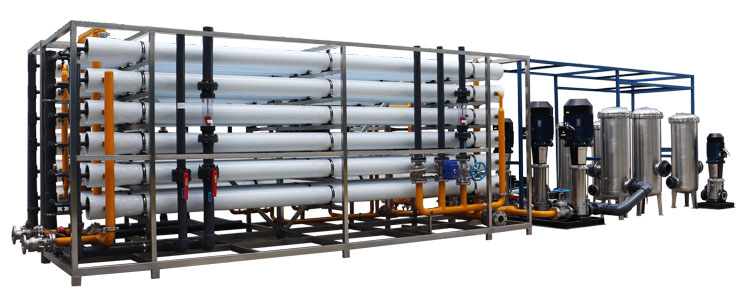
Conclusion of the best filtration system to remove sulfur from water
The best filtration system to remove sulfur from water depends on the specific water quality and treatment needs. Activated carbon filters, oxidation filtration systems, reverse osmosis systems, ion exchange systems, and green sand filters each have their own advantages and disadvantages and are suitable for different application scenarios.
By comprehensively considering the water quality test results and the actual use environment, you can choose the most suitable filtration system to ensure the safety and health of drinking water.
Durch umfassende Berücksichtigung der Ergebnisse der Wasserqualitätstests und der tatsächlichen Nutzungsumgebung können Sie das am besten geeignete Filtersystem auswählen, um die Sicherheit und Gesundheit des Trinkwassers zu gewährleisten.





